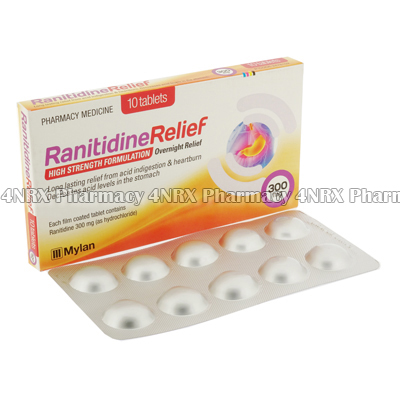 |
Home  Stomach Stomach  Ranitidine Relief (Ranitidine Hydrochloride) Ranitidine Relief (Ranitidine Hydrochloride) |
|
|||||||||
|
|
Ranitidine Relief (Ranitidine Hydrochloride)
What is Ranitidine Relief (Ranitidine Hydrochloride) used for? Ranitidine Relief (Ranitidine HCL) is an oral medication used to treat or prevent the formation of stomach ulcers. It operates by reducing the production of stomach acid to prevent further damage to the stomach lining or oesophagus. This also makes it useful for treating chronic indigestion, heartburn, gastro-oesophageal reflux disease, or preventing stomach damage in patients using NSAID medications. Your doctor may prescribe it for the treatment of other unlisted conditions, as well. How should I use Ranitidine Relief (Ranitidine Hydrochloride) ? Ranitidine Relief (Ranitidine HCL) should be used according to your doctor`s instructions to get the safest and most effective results from treatment. One tablet is normally taken once or twice each day, but your individual instructions will depend on your age, weight, current health, the condition being treated, and symptom severity. These should be swallowed with a large glass of water and may be taken with or without food, although a snack or meal is suggested if you get an upset stomach. Avoid crushing or splitting the tablets as this may destroy or change the effects of their contents. Ask your doctor any questions you have about the medicine to ensure the correct administration. What are the side effects of Ranitidine Relief (Ranitidine Hydrochloride) ? Some patients using Ranitidine Relief (Ranitidine HCL) have reported experiencing side effects such as:
Contact your physician if you experience any serious or worrying side effects such as fever, flu symptoms, severe headaches, sensitive skin, easier bruising, chest pain, difficulty breathing, darkened urine, discoloured stools, or jaundice. These conditions may require lower doses, reduced application frequency, or immediate medical attention in serious cases to prevent further health complications from occurring. Please Note Ranitidine Relief (Ranitidine HCL) should not be administered to patients who are allergic to ranitidine, who have had a bad reaction to similar treatments in the past, or who have porphyrias. You are also suggested to inform your doctor if you have reduced kidney function as these conditions may cause unexpected health problems requiring special alterations to your regimen. Strictly use Ranitidine Relief (Ranitidine HCL) as prescribed and follow all instructions provided by your doctor. Safe, suitable, and optimum dosage can vary and is dependent on the patient`s health and medical history, as well as the condition you are treating. Ranitidine Relief (Ranitidine HCL) may not be safe or suitable for all patients. Always ensure your doctor is informed if you are pregnant or breastfeeding, using any other type of medication (including non-prescription medicine, vitamins, and supplements), as well as if you have any allergies, other illnesses, or pre-existing medication conditions. Seek immediate medical attention or proceed to your nearest accident and emergency department if you suffer a hypersensitive or allergic reaction. Symptoms usually present during a reaction of this nature include difficulty breathing or swallowing, swelling of the limbs or face, tight chest, hives, and skin rashes. 
|
||||||||||||||||||